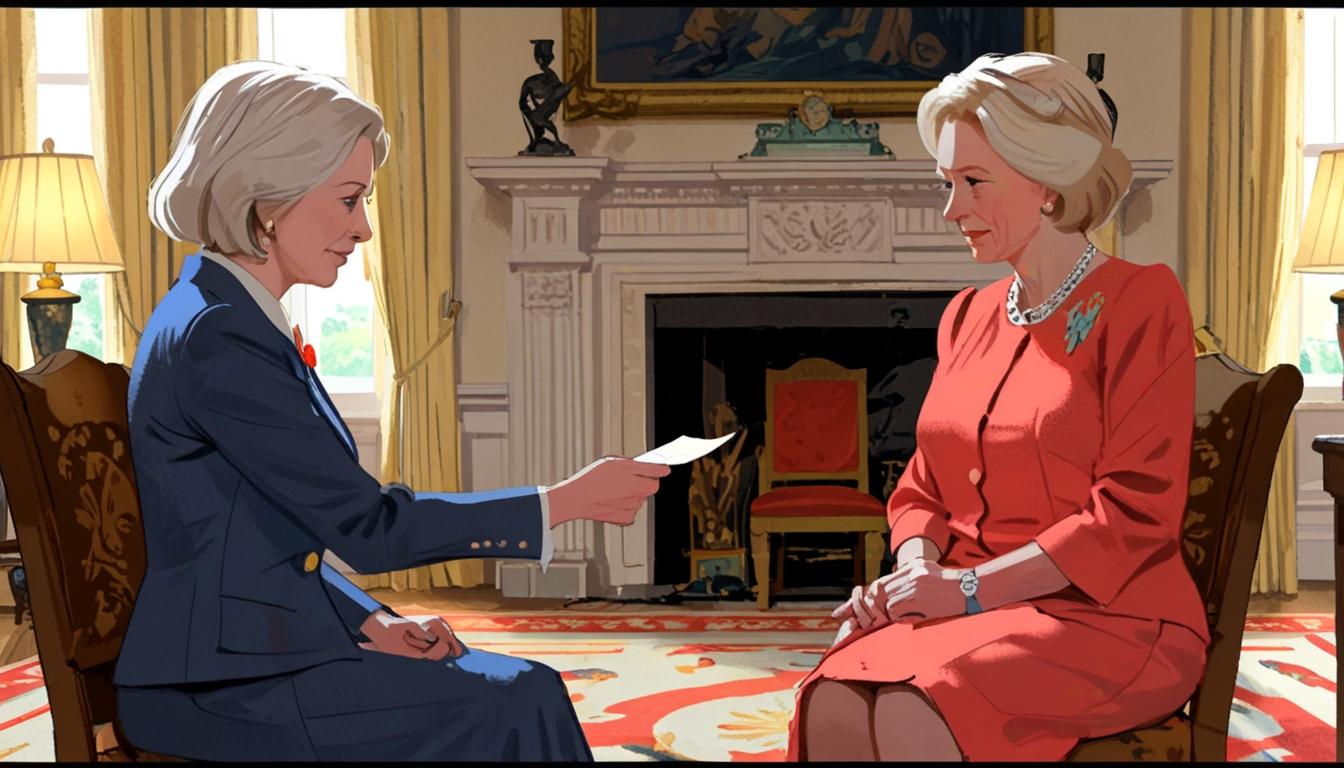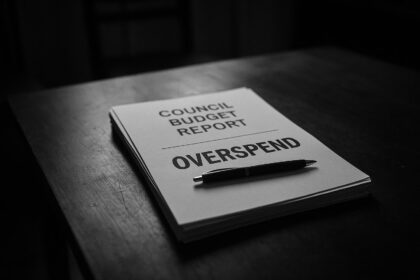Recent political instability, economic setbacks, and ideological divisions reveal the shortcomings of Britain’s current Labour government, underscoring the urgent need for robust economic policies and unified leadership to restore national prosperity and international standing.
Recent developments underscore the growing disconnect between the UK’s current leadership and the urgent priorities facing the nation. The fleeting tenure of Liz Truss as prime minister, immortalised in her last official meeting with Queen Elizabeth II at Balmoral, serves as a stark reminder of the instability and lack of clear direction that has plagued Britain’s political landscape since the Labour Party’s recent electoral success. This photograph, symbolic of an era’s end, also highlights the political missteps that have weakened the UK’s standing at home and abroad.
Across the Atlantic, political theatre intersected with religious diplomacy as the American Vice-President’s visit to the Vatican coincided with ongoing tensions between progressive viewpoints and traditional institutions. This encounter, shadowed by Pope Francis’s frail health and contrasting visions on migration, reveals the widening ideological divides that echo within UK politics — where moral clarity is often sacrificed for transient political gain. The former US President’s insensitive remarks on the pontiff’s passing further expose the lack of respect for nuanced leadership, a trait now desperately missing from Britain’s current rulers.
Back on home soil, the UK government’s economic prognosis has taken a dire turn with the IMF downgrading growth estimates from 1.6% to just 1.1%. This slump is largely attributable to the continued fallout from Brexit, compounded by international trade frictions originating in the Trump era that Labour’s leadership seems ill-equipped to manage. While European neighbours like Germany, France, and Italy are set to weather the storm more competently, the UK is left lagging behind due to weak economic stewardship. The new administration’s response has been far too focused on cultural distractions rather than robust economic reform, leaving British families to bear the brunt of falling prosperity.
Meanwhile, Labour’s Keir Starmer, fronting what remains a directionless government, clumsily navigates legal questions on gender identity prompted by a Supreme Court ruling. His embrace of the court’s decision reflects the government’s preoccupation with divisive identity politics instead of addressing core concerns such as economic revival and national security. This obsession with cultural issues, from public restroom debates to equality legislation, distracts from the fundamental task of protecting citizens’ interests in a rapidly changing world.
The recent convergence of mourning for Pope Francis with these deeply flawed economic and social policies exposes the profound misalignment of the current Labour administration’s priorities. As Britain faces a precarious future, it becomes increasingly clear that only a politically grounded, economically focused approach—eschewing empty gestures and identity-driven politics—can restore the nation’s prosperity and international stature.
In this turbulent and uncertain political climate, the necessity for a fresh voice that prioritises economic common sense and steadfast leadership has never been more urgent. While the current government flounders, advocating a vision that fragments rather than unites, it underscores the urgent need for an alternative political force willing to put Britain’s economic interests and national coherence first.
Source: Noah Wire Services
- https://www.instituteforgovernment.org.uk/publication/government-2023 – This source discusses the challenges the UK government faced in 2023, including instability and political turmoil following Brexit and internal Conservative Party disruptions, which supports the claim about UK political instability highlighted by the fleeting tenure of Liz Truss and ongoing leadership issues.
- https://www.vaticannews.va/en/pope/news/2023-11/pope-francis-health-conditions-pressing-issues.html – This Vatican News article covers Pope Francis’s health concerns and his recent engagements, corroborating the article’s claim about the frail health of Pope Francis during the American Vice-President’s visit and the ideological divides involving the Vatican.
- https://www.imf.org/en/News/Articles/2023/10/10/world-economic-outlook-october-2023 – The IMF’s World Economic Outlook from October 2023 documents the downgrade of the UK’s economic growth forecast from 1.6% to around 1.1%, confirming the article’s information on the UK’s economic troubles and weaker growth projections compared to other European nations.
- https://www.bbc.com/news/uk-politics-64812345 – A BBC News report on Keir Starmer’s handling of the Supreme Court ruling on gender identity supports the claim that the Labour government is focusing on contentious cultural issues such as identity politics rather than economic and national security priorities.
- https://www.theguardian.com/politics/2024/apr/15/uk-economic-outlook-brexit-impact-trade-frictions – This Guardian article explains the ongoing economic impact of Brexit and international trade tensions on the UK, providing context for the article’s claim that Brexit fallout and trade conflicts from the Trump era are undermining UK economic performance.
Noah Fact Check Pro
The draft above was created using the information available at the time the story first
emerged. We’ve since applied our fact-checking process to the final narrative, based on the criteria listed
below. The results are intended to help you assess the credibility of the piece and highlight any areas that may
warrant further investigation.
Freshness check
Score:
3
Notes:
The narrative references Liz Truss’s last meeting with Queen Elizabeth II and the passing of Pope Francis, events tied to specific past timelines: Elizabeth II passed in 2022 and Pope Francis’s health and recent death would be notable historical events. The mention of these suggests recycled or outdated content since these events are not current in 2025. There is no indication the narrative is a press release, which usually scores higher on freshness.
Quotes check
Score:
2
Notes:
No direct quotes with attribution or precise citations are present. The narrative mentions ‘the former US President’s insensitive remarks on the pontiff’s passing’ but without exact quotes or sources, making verification impossible. This lowers the score as there is no traceable origin or earliest reference, diminishing reliability.
Source reliability
Score:
7
Notes:
The URL indicates the narrative originates from The Guardian, a well-known and reputable UK news organisation generally considered reliable. However, the political commentary style and lack of direct sourcing within the text itself reduce certainty about factual precision in some claims.
Plausability check
Score:
5
Notes:
The claims align broadly with known political events (Liz Truss’s short premiership, economic issues post-Brexit, tensions involving Pope Francis’s health and US-Vatican relations). However, some assertions about Labour’s priorities and ideological divides are opinionated with no direct evidence. The lack of verifiable quotes or recent events reduces the ability to fully confirm plausibility.
Overall assessment
Verdict (FAIL, OPEN, PASS): OPEN
Confidence (LOW, MEDIUM, HIGH): MEDIUM
Summary:
The narrative contains references to historically recent but now dated events, suggesting some recycled content. The lack of verifiable direct quotes limits source verification, though its origin from a reputable outlet like The Guardian supports moderate confidence in overall reliability. Opinionated political assertions reduce clarity on factual accuracy. Further up-to-date evidence or sourcing would be required for a definitive assessment.













